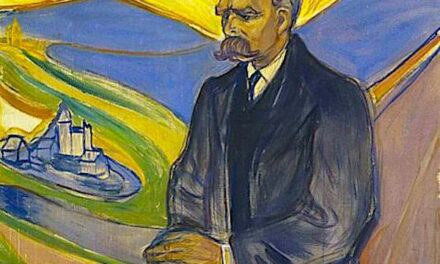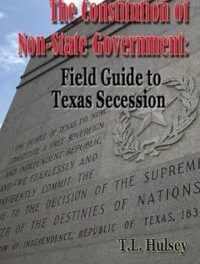We support our Publishers and Content Creators. You can view this story on their website by CLICKING HERE.
What did William F. Buckley’s “Firing Line” teach me about our modern democracy? Simply this: It is not too late to reclaim intelligent and competent, moral and visionary political conversation. Nor is it too late to right the direction of our flagging democracy.
The tyranny of a prince in an oligarchy is not so dangerous to the public welfare as the apathy of a citizen in a democracy.
—Montesquieu
It is the greatest of all mistakes, to do nothing because you can only do little.
—Sydney Smith
Politics is too serious a matter to be left to the politicians.
— Charles de Gaulle
In 1988, the University of South Carolina hosted William F. Buckley, Jr.’s Firing Line for a debate: Resolved: That the Right Is Better Able to Deal with the Soviets than the Left. For two free-ranging hours, a team of conservatives including National Review founder and conservative wag William F. Buckley, former Secretary of State Henry Kissinger, former U.N. Ambassador Jeane Kirkpatrick, and Republican House member Jack Kemp sparred with a team of liberals including former Senator and presidential candidate George McGovern, former Senator and presidential candidate Gary Hart, Democratic House member Pat Schroeder, and diplomat Paul Warnke.
For nearly two hours (imagine!), a packed auditorium was treated to an incisive, wide-ranging, and spirited debate between well-educated, articulate, and insightful experts on Soviet-American relations. The debate took place against the backdrop of an American election between Vice President George H. W. Bush and Governor Michael Dukakis. The Soviets, led by Mikhail Gorbachev and an ossified communist bureaucracy, were economically crippled, militarily flagging, and only a year away from losing Berlin and three more away from total collapse. The Firing Line debate between political adversaries and philosophical opposites was a delight both in its sharp wit and delicious wonkery.
To my surprise, I gained a lot from immersing myself in this debate. From the puckish Buckley to the crisp Warnke, from the avuncular McGovern to the sharp Kirkpatrick, I was struck by the depth of their fluency, the authenticity of their civility, and the warmth of their wit. Reflexively, I expected name-calling; it never came. Instinctively, I anticipated hackneyed soundbites; they never arrived. Again and again, I envisioned disliking individuals and despairing of their answers but, instead, I found myself strikingly impressed. Of course, these individuals were human and emotional and could bring a partisan edge to their debate, but this exchange was something altogether foreign from what I have seen in our society’s modern discourse.
Where was this strange land populated by competent thinkers, earnest debaters, and winsome jousters over vital issues of the day? Who was this audience who—for hours—laughed and cheered, groaned and grimaced over the substance of argument and the subtleties of style? Nuanced debate? Intellectual discussion? Earnest deliberation on matters of great import? How odd! The fact that this struck me as so peculiar—a reportable event, really—was an indictment of the current political discussions between officials, the media, and ourselves. It forces us to ask: If this thoughtful, intricate, and productive exchange is so deeply foreign to us, then what have we, as a democracy, become?
Like the proverbial frog in the boiling water, I wonder if we have been simply oblivious to our unfolding fate. Who are we as a democratic polity? What happened to us? As this political season has advanced, we have had one debate between presidential candidates and one debate between vice-presidential candidates. The topics were broad, the plunge was shallow, and the time was short. Meanwhile, the Firing Line debate covered one topic (in great depth) for over two hours. The presidential and vice-presidential debates covered every topic (with shameful superficiality) in barely ninety minutes. I’m not sure, but it seems to me that our country is caught in a bit of a multifaceted crisis. This should warrant long and substantive discussions about a vast range of issues—perhaps even a weekly three-hour round table conversation between the two presidential and vice-presidential candidates (I mean, c’mon, people listen to Joe Rogan for three hours every day) exploring the economy, foreign policy, immigration, crime, and constitutional first freedoms. This would give citizens a chance to hear how candidates think, how they reason, how they perform under pressure, off the cuff, and unable to hide behind facile talking points and strategic filibusters.
But this is not what we have gotten.
Instead, we have been told by our elected representatives and the media establishment to take our medicine as a sampling of these issues were rushed through, brushed off, and reduced to a gaggle of shaken heads, rolled eyes, and deeply unsatisfying soundbites.
This is inexcusable.
Today, we have more platforms and more time to explore more issues in more depth and yet somehow we are, substantively, covering less and less. It seems that the powers-that-be—that is, the politicians, the media, and the well-funded interest groups—feel that the people have enough information housed in direct mail campaign materials, scare-tactic commercials, and thirty-second answers (with no meaningful follow-up questions) on flagship news programs. Where are the policy debates a la the Lincoln-Douglas debates? Where are the honest interlocutors on the evening and Sunday morning news programs? Where are the unimpeachable watchdogs of democracy? “Tut-tut, America,” our overseers collectively say, “Take your meager portion and zip it.”
The United States House of Representatives has become a hotbed of shouters. The Senate, purportedly the greatest deliberative body in the modern world, is an abandoned cavernous chamber hosting one lonely senator offering boilerplate pronouncements. Our presidents (or presidential candidates) are less than inspiring. Meanwhile, few citizens routinely know what bills are being passed, what amendments are being made, or whether the legislation is good or bad for our country. Few candidates are held accountable for troubling legislation, egregious indiscretions, or rank incompetency. They simply ignore inconvenient questions, continue in their bad behavior or questionable judgment, and merrily waltz their way into re-election. All this occurs as we live in a spiraling culture that lives solely to escape any modicum of scruples (which are deemed constraining fetters) that might put much-needed brakes on a wanton libertinism.
Sheesh.
Whose fault is this? And how can we change it?
To be sure, our elected officials and media deserve blame. But let’s move to the tough stuff: They are the products of our votes and our money. Our dismal leaders and opinion-makers are our creatures. The fault, ultimately, rests with you and me.
If we deserve better than this, then we should demand better—not angrily, but assertively. Corrupt or incompetent leadership is re-elected because we re-elect them. Lousy, compliant media is sustained because we watch it. We are ill-informed of policies because we do not seek out answers or require the media to provide us more than bread and circuses. Our representatives line their pockets or vote against our interests because we fail to require of them a dissertation on the issue and a defense of their particular vote on it. We are not part of the enthusiastic crowd at a Firing Line debate because we are too busy with our important daily concerns, but also anesthetizing ourselves with food and drink, sex and shows. In some ways, we have grown flabby in our values and tired in our resolve.
Can’t we do better?
It has been said that Winston Churchill darkly quipped, “The best argument against democracy is a five-minute conversation with the average voter.” And George Bernard Shaw admitted, “Democracy is a device that ensures we shall be governed no better than we deserve.” If that isn’t an imputation of us, I’m not sure what is. Sadly, however, they may be right.
It is time to demand (with civility, yet assertiveness) more of our representatives by first demanding more of ourselves. We must understand more about our local and national candidates. We must familiarize ourselves with the issues upon which they pronounce and vote. We must mold our perspective by becoming more fluent in the political system and what informs it (including faith and philosophy, law and economics, history and literature). We must form our children to become discerning thinkers and invested citizens. And finally (and perhaps most importantly), as Catholics, we must immerse ourselves in the sacraments and prayer, spiritual reading and works of mercy so that our conscience is formed and our souls are pure. All of this can help us in making more prudent decisions regarding our republic’s representation and our culture’s direction.
The Firing Line debate that I watched is only thirty-six years old. And yet, so removed was it from our current political culture that it could have been one hundred and thirty-six years old. What did William F. Buckley’s Firing Line teach me about our modern democracy? Simply this: It is not too late to reclaim intelligent and competent, moral and visionary political conversation. Nor is it too late to right the direction of our flagging democracy. But it requires us to demand more—more thoughtful conversations, more nuanced policy debates, more moral considerations, more competent representation, and more accountability when things go awry.
To find our way back, we must demand more.
But we must begin with ourselves.
Republished with gracious permission of the author from Word on Fire.
The Imaginative Conservative applies the principle of appreciation to the discussion of culture and politics—we approach dialogue with magnanimity rather than with mere civility. Will you help us remain a refreshing oasis in the increasingly contentious arena of modern discourse? Please consider donating now.
The featured image is National Review Magazine founder William F. Buckley Jr. in an undated handout photo. This file is in the public domain, courtesy of Wikimedia Commons.

 Conservative
Conservative  Search
Search Trending
Trending Current News
Current News 






